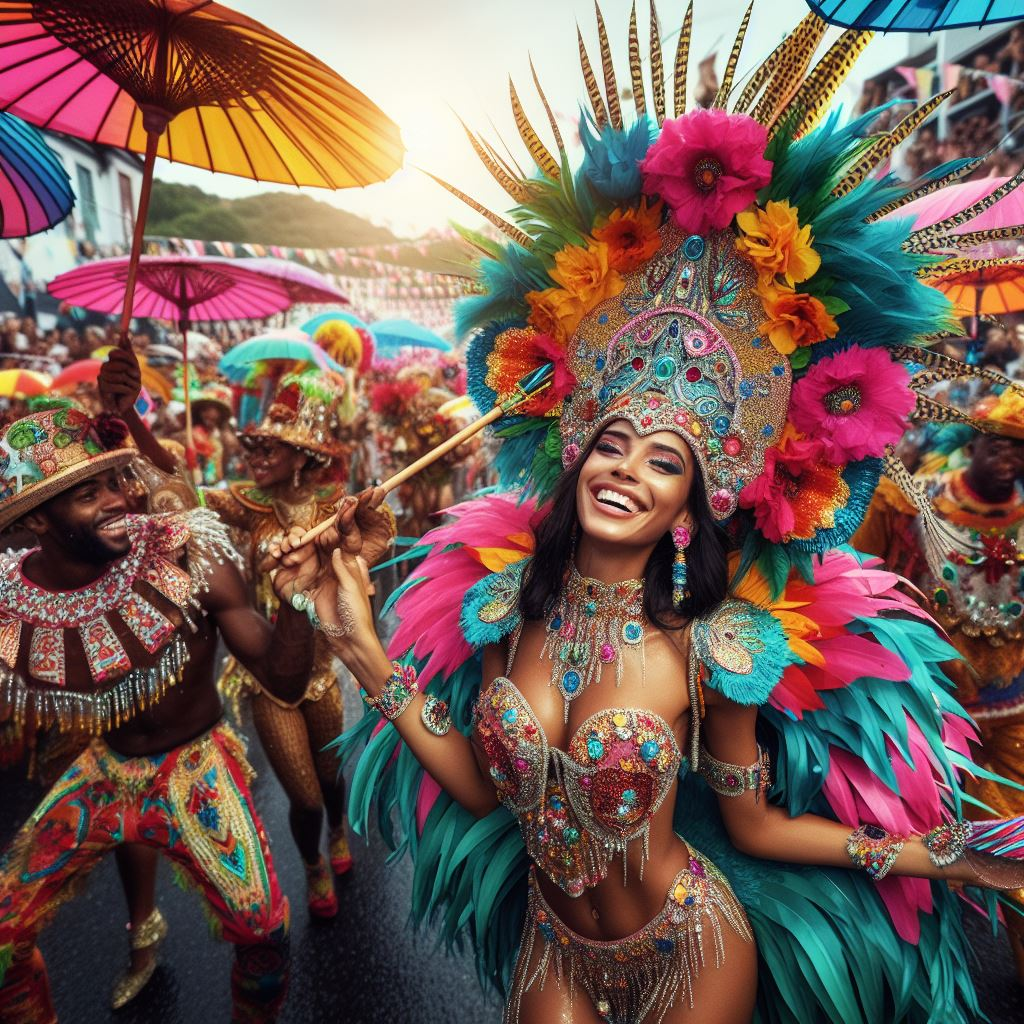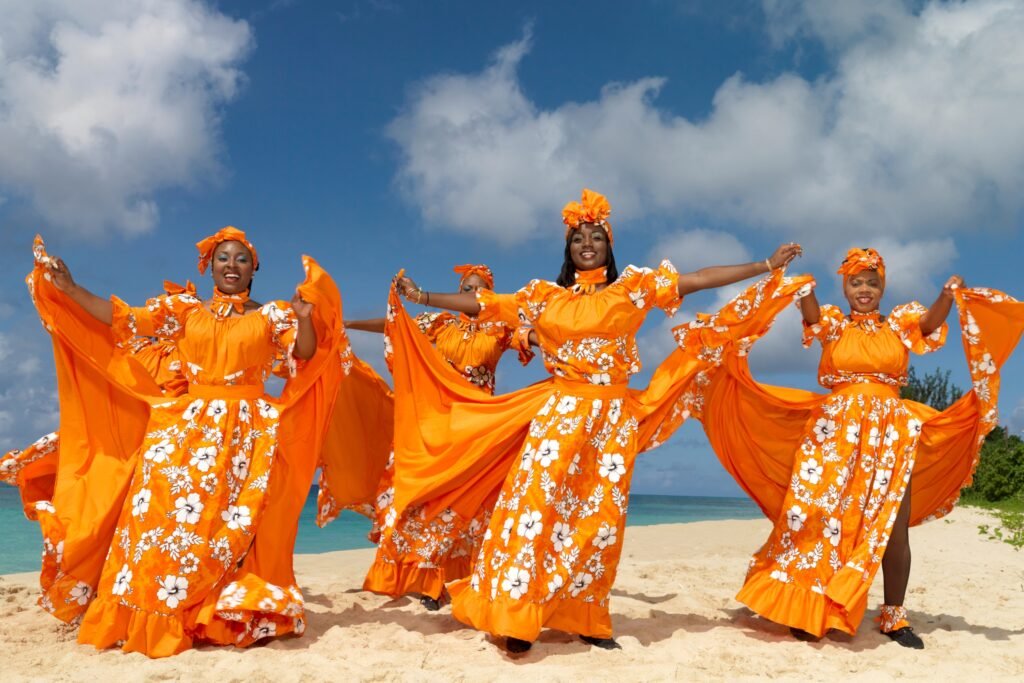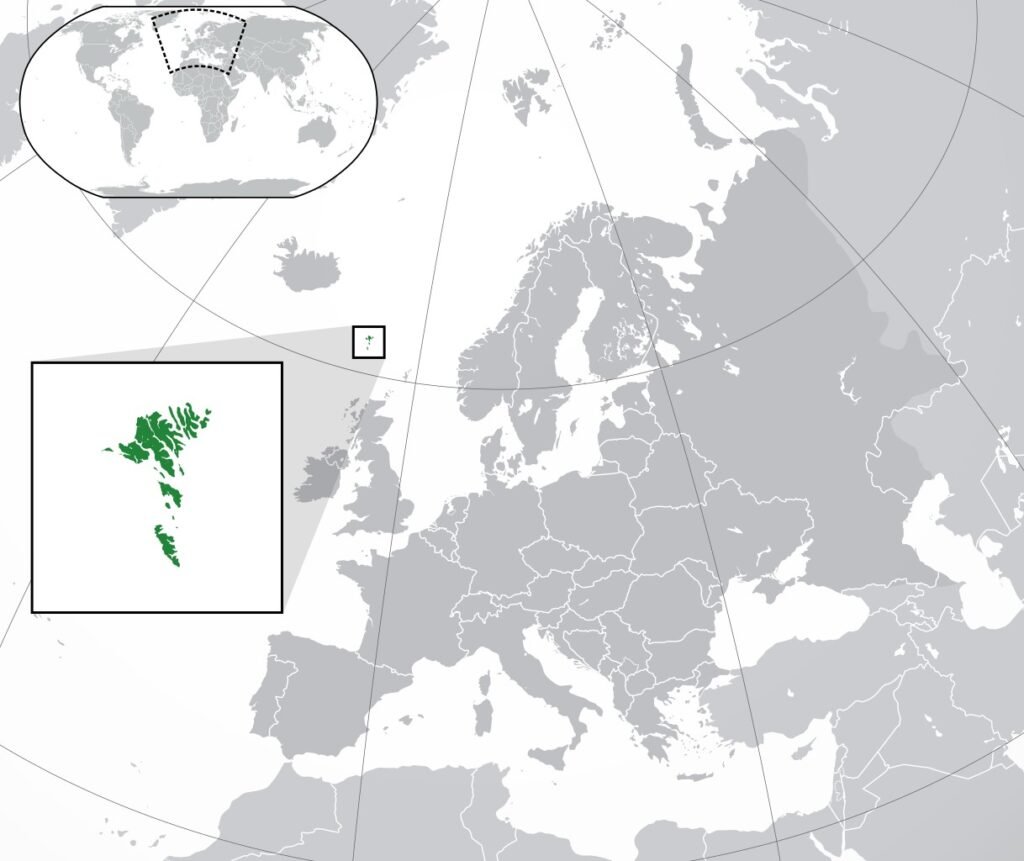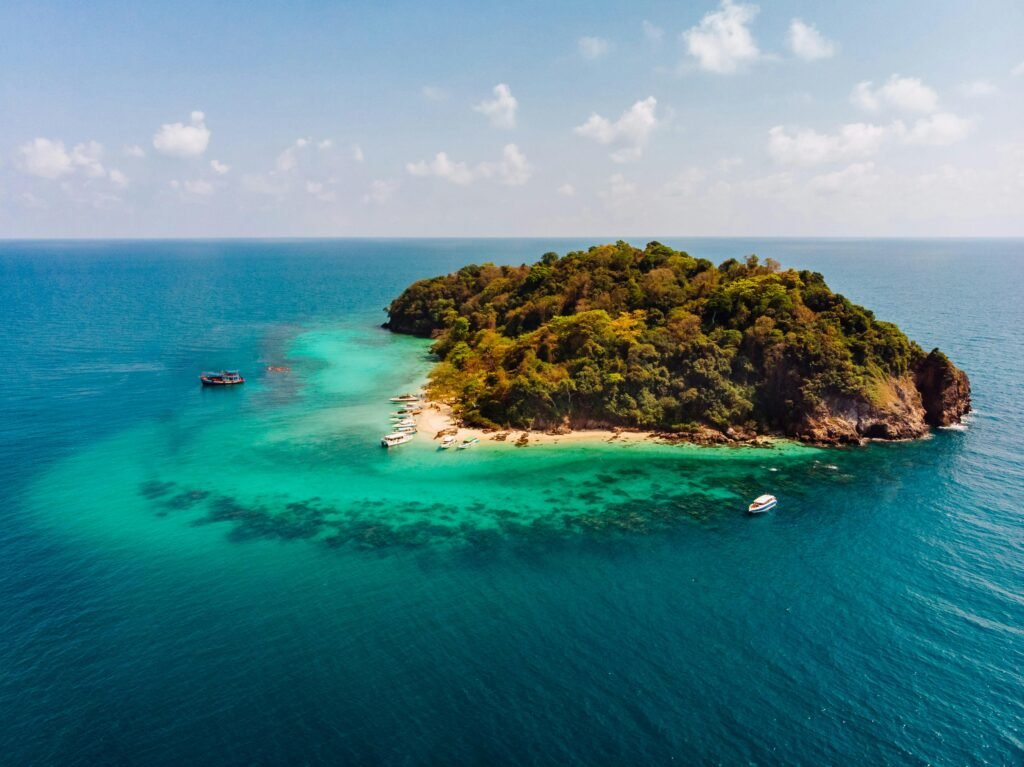The Caribbean Islands often evoke images of packed beaches in popular hotspots. But hidden among these well-known destinations lies a treasure trove – the lesser-known Caribbean islands. These islands offer just as much excitement, if not more, especially when it comes to Cultural Festivals on Lesser-Known Caribbean Islands. These celebrations burst with unique experiences, deep cultural connections, and opportunities to support local communities. For the traveler seeking authenticity, these lesser-known islands include places outside the usual spotlight, such as Montserrat, Nevis, Saba, and others.

Why Attend Cultural Festivals on Lesser-Known Caribbean Islands
- Unique experiences: Imagine fewer crowds, more significant opportunities to interact with islanders, and witnessing traditions untouched by mass tourism. Discover the true essence of island life.
- Deep cultural immersion: Be a part of time-honored traditions passed down through generations. These aren’t staged performances for tourists; these are communities celebrating their rich heritage.
- Support local economies: Your attendance directly benefits these smaller island communities. Spending money on local food, crafts, and accommodations makes a significant difference.
Top Lesser-Known Caribbean Islands with Amazing Cultural Festivals
While many islands hold captivating festivals, here’s a taste of the rich tapestry found across the lesser-known Caribbean:
Montserrat: The Emerald Isle of the Caribbean
Patrick’s Festival (March):
This unique celebration honors Montserrat’s Irish roots, dating back to the 17th century. While a traditional St. Patrick’s Day observance, it gets a Caribbean twist. Expect parades infused with African-inspired costumes, lively masquerade performances, and the sounds of calypso and soca music alongside Irish jigs. The festival culminates in a Freedom Run, symbolizing the enslaved population’s uprising in 1768.
Calabash Festival (May/June):
Literature and the arts take center stage. Attend book readings, panel discussions with local and international authors, art exhibitions showcasing Montserratian artists, and music and dance performances that reflect the island’s history and cultural vibrancy.
Saba: The Unspoiled Queen
Saba Summer Festival (July/August):
This is the festival to attend for an authentic taste of Saban warmth. The schedule varies slightly from year to year but generally includes the following:
- Colorful parades with elaborate costumes
- Street food vendors dishing up local specialties
- Musical performances ranged from steel pan to reggae and soca bands.
- Competitive events like boat races and sporting matches bring the whole island together.
Sea & Learn on Saba (October):
A fascinating choice for those interested in both culture and conservation. For a month, visitors participate in:
- Guided dives and snorkeling trips to discover Saba’s pristine marine environment
- Lectures and workshops led by marine biologists
- Hikes with local guides through lush rainforests
- Cooking classes exploring traditional Saban cooking
- Community events fostering cultural exchange between visitors and islanders

Nevis: The Queen of the Caribees
Culturama (Late July/Early August):
Get ready for a sensory overload! Nevis’ most enormous celebration bursts with energy:
- Elaborate street parades showcasing cultural troupes in vibrant costumes
- Calypso competitions where witty and insightful lyrics rule the stage
- “J’ouvert” – a lively street party at sunrise kicking off the main festivities
- Exhibitions and shows highlighting Nevisian history and art.
Nevis Mango & Food Festival (July):
A culinary delight for foodies! Events center around the island’s 44+ varieties of mangoes:
- Gourmet meals prepared by top chefs featuring the mango in innovative ways
- Cooking demonstrations with local cooks sharing traditional recipes
- Mango-themed cocktails and local drinks
- A vibrant market selling fresh mangoes and mango-based products
Statia (St. Eustatius): The Historic Gem
Statia Carnival (July):
A fusion of music, dance, and history fills the streets. Expect:
- Spectacular parades with vibrant floats and historical themes
- Calypso shows where artists tackle social issues with humor and musicality.
- “Jump-ups” where revelers dance to the infectious beat of soca bands
- Street vendors offering up traditional Statian foods and drinks
The Golden Rock Regatta (November):
Sailing enthusiasts and spectators alike delight in this event.
- Witness competitive sailing with a focus on traditional boats
- On-shore parties and festivities with live music
- Celebrates the island’s history as a maritime hub during the “Golden Rock” era
Marie-Galante: Guadeloupe’s Rural Escape
Festival Terre de Blues (May):
Music lovers flock to this festival celebrating the intersection of Creole melodies and the blues. Expect:
- International blues performers alongside local bands showcasing their talents
- A soulful atmosphere on the island’s stunning beaches
- Opportunities to taste Marie Galante’s famous rum at distilleries
Fête des Cuisinières (August):
Honors the culinary traditions and the island’s female chefs.
- Elaborate costumes were worn by the “Cuisinières” as they paraded before cooking competitions.
- Demonstrations showcasing techniques in traditional Guadeloupean cuisine
- Sampling locally sourced seafood, Creole dishes, and island desserts

Culebra: Puerto Rico’s Enchanted Isle
Festival de la Tortuga (March/April):
Highlights sea turtle conservation in a fun, festive way. Look forward to:
- Beach cleanups and educational displays about sea turtle conservation
- Live music, local food, and activities for both adults and children
- Potential to observe turtle nesting or hatching depending on the season
Culebra International Regatta (October):
Celebrates the island’s sailing tradition with competitive races between different classes of boats. Events include:
- Parties and festivities around the regatta events
- Opportunities to explore the island and its vibrant local culture
Canouan: The Heart of the Grenadines
Canouan Carnival (February/March):
Experience a smaller, intimate celebration with a significant Caribbean spirit. Anticipate:
- Colorful costume parades and smaller troupes showcasing their choreography
- Steelpan bands and calypso music set the rhythm
- Food stalls serving up Canouan specialties and Caribbean favorites
Music and Kite Festival (April):
A joyous blend of childhood nostalgia and island culture. Witness:
- Handmade kites of all shapes and sizes soaring in the sky
- Local bands and DJs provide live music for the festivities.
- Traditional Canouan storytelling and cultural activities
Carriacou: The Land of Reefs
Carriacou Parang Festival (December):
A celebration of the unique Christmas tradition of ‘Parang .’Prepare for:
- Groups of Parang singers going house-to-house performing festive songs
- String band competitions showcasing musical talent and local melodies
- A chance to taste traditional Christmas foods like sorrel drink and black cake
The Carriacou Maroon & String Band Music Festival (April):
Preserve African roots in Carriacouan culture. Expect:
- Maroon drumming performances filled with history and ancestral connection
- String bands playing a unique blend of European and African-influenced music
- Cultural workshops and storytelling to learn more about Carriacou’s heritage
What to Expect at a Lesser-Known Caribbean Festival
While each festival boasts its unique flavor, here’s a snapshot of the elements that make them so unique:
- Vibrant Music and Dance: The heart and soul of any Caribbean festival! Prepare to be swept away by the infectious rhythms of soca, calypso, and reggae. You might also encounter local styles specific to the island, like the Quelbe of the US Virgin Islands or the Zouk of Guadeloupe and Martinique. Dance performances are equally captivating, from traditional folk dances to elaborate costumed troupes parading through the streets.
- Costumes and Parades: A visual feast! Intricate costumes showcasing cultural themes or historical characters are a hallmark of festival parades. Get your camera ready for bursts of color, feathers, sequins, and dazzling displays of creativity rooted in heritage.
- Delicious Local Food: Festivals are a culinary adventure! Expect to find street vendors and food stalls serving up mouthwatering dishes. Sample island specialties include conch fritters, jerk chicken, roti, callaloo, etc. It’s a chance to indulge in the authentic flavors of the Caribbean.
- Community Spirit: These festivals are not just for visitors; they are the heart of the island communities. You’ll witness a warm and welcoming atmosphere where locals and travelers come together in celebration. Expect contagious laughter, simple conversations, and a true sense of shared joy.
Tips for Planning Your Trip
- Book in advance: Smaller island accommodations can quickly fill up around popular festival times. Plan early to secure your preferred lodgings.
- Research festival dates: While some festivals occur annually, dates might shift slightly from year to year. Double-check the exact dates for your chosen festival and start planning around them.
- Learn some local phrases: A few essential words in the island’s dialect or language go a long way. Learning “hello,” “please,” “thank you,” and some greetings will enhance your interactions with locals.
- Embrace the island pace: Things in the Caribbean often move more flexibly. Be flexible, leave room for spontaneity, and enjoy soaking in the island atmosphere beyond the festival.
- Pack for the climate: Expect tropical weather: light clothes, rain gear, sunscreen, and a hat. However, if attending events like church services, pack a modest outfit.
Beyond the Festivals
The beauty of these islands is that even after the music fades, there’s still so much to experience:
- Explore natural beauty: Many lesser-known Caribbean islands are havens for nature lovers:
- Hiking trails: Trek through lush rainforests or climb volcanic peaks for breathtaking views. Saba, Dominica, and St. Lucia are favorites for adventurous hikers.
- Pristine beaches: Escape the crowds on secluded white or black volcanic sand stretches. Anguilla, Barbuda, and the British Virgin Islands offer seriously stunning shorelines.
- Diverse marine life: Snorkel or dive through vibrant coral reefs teeming with colorful fish. Bonaire, the Cayman Islands, and the US Virgin Islands are renowned diving and snorkeling destinations.
- Support local artisans: Seek out unique island-made crafts and artisanal products:
- Locally made jewelry and artwork: Browse galleries and markets for pieces inspired by the island’s culture and natural beauty.
- Handwoven textiles and baskets: Discover traditional weaving techniques and support local craftspeople.
- Spices and local produce: Pick up spices, rum, and island-grown fruits at farmers’ markets for an authentic taste of the Caribbean.
- Experience warm hospitality: One of the hallmarks of the Caribbean! Lesser-known islands often have a strong sense of community, where visitors are welcomed. Strike up conversations in local shops and eateries, and you might be surprised by the friendly connections you make.
Conclusion
Attending a cultural festival on a lesser-known Caribbean island offers an exceptional travel experience. You’ll witness firsthand the communities’ vibrant spirit, rich heritage, and unwavering hospitality. By choosing these islands, you have a more authentic adventure, directly support local economies, and contribute to responsible tourism.
So, if you’re ready to step off the beaten path and immerse yourself in the genuine heart of the Caribbean, let these lesser-known islands and their dazzling festivals be your next destination.
FAQs
Q: Are cultural festivals on lesser-known Caribbean islands family-friendly?
A: Absolutely! Many festivals include parades, food stalls, and fun activities for all ages. Always check the specific festival program for family-oriented events.
Q: Do I need to speak the local language to attend a festival?
A: While knowing a few basic phrases helps, it’s optional. The welcoming atmosphere and music transcend language barriers.
Q: What’s the perfect time of year to visit the Caribbean for festivals?
A: Many festivals happen during the summer months (June-August) or around particular holidays like Christmas. However, each island has its unique calendar, so research your chosen festival’s dates.
Q: How do I find out about cultural festivals on specific islands?
A: Tourist boards are your perfect bet! Island-specific tourism websites often list significant festivals and their dates.
Q: Can I learn more about the history and culture of the island when I go to a festival?
A: Yes! Festivals frequently include historical displays, art exhibitions, and cultural demonstrations that provide a deeper understanding of the island.


